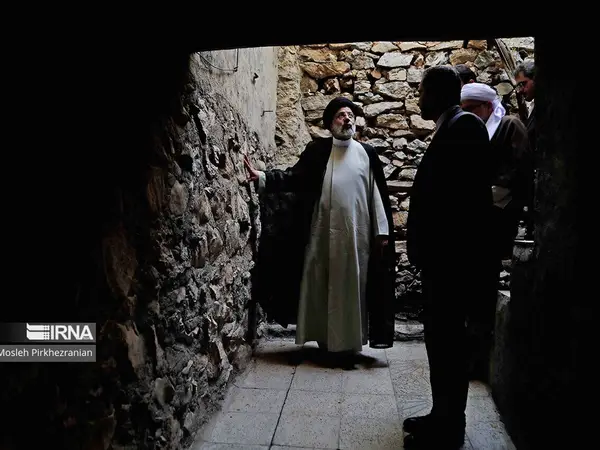President Ebrahim Raisi should resign over his government’s failure to deal with calamitously high inflation, an Iranian lawmaker has urged.
Mostafa Reza Hosseini Ghotbabadi said: “Unfortunately, there is no will on the part of Raisi’s government to curb inflation, and basically they are not able to handle the situation.”
Speaking on Monday, he added: “Secondly, the head of government and his first deputy do not have the necessary expertise to make the right decisions regarding inflation and economic issues.”
Inflation is currently running at about 50%, with disastrous effects on the economy and leaving families struggling to survive.
Conservative lawmaker Ghotbabadi, an Iraq-Iran war veteran, said that the two years since Raisi came to power had shown his administration is incapable of getting to grips with the out-of-control inflation rate.
He said: "With the current procedures and functioning of the government and officials, we have to wait for worse things to happen in the economy.
“Both government officials and MPs aligned with the administration ask us to give hope to the people and not tell them that the situation is bad, but we took an oath and according to the constitution we should speak up about the issues.”
He said that as soon as lawmakers warn about incompetent officials and ineffective management in projects and plans, hardliner supporters of the administration try to stop them via lawsuits and threats.
Ghotbabadi, a member of the parliamentary Industries and Mines Committee, said that the government has declined to cooperate with parliament since its early days in office. His remarks may seem surprising, given that many members of Iran's hardliner-dominated parliament are former members of the IRGC and would be expected to support the administration. But criticism of Raisi has been on the rise even among conservatives as the economic crisis worsens.
Echoing the Iraq-Iran war, when young volunteers walked through minefields to pave the way for other soldiers, the lawmaker said that if Raisi truly cares for the country, he should step on “the resignation mine” and step down along with his cabinet so that “a capable person with a strong team” could take charge.
Ghotbabadi said: “We are losing time and opportunities... We need a strong, powerful, wise and capable government.”
In July 2022, Ghotbabadi for the first time called on parliament to table a motion to unseat the President for incompetence, saying at the time that the Majles had been mulling the idea of Raisi's incompetence at least twice in recent months.
Earlier this month, Raisi replaced the head of the Planning and Budget Organization and the agriculture minister, after a year of calls by lawmakers and critics and amid skyrocketing inflation. The move came several days after Education Minister Yousef Nouri resigned following widespread discontent at a delay in the payment of salaries for teachers. However, pundits believe the changes are too little and too late.
On Monday, a motion to impeach Reza Fatemi Amin, minister of industry, mine and trade was registered at the parliament’s presidium after garnering 40 signatures.
However, the president seems unwilling to reshuffle the cabinet, according to statements he made during a meeting with a group of students on Sunday evening. This administration would not seek to replace managers unless it is absolutely necessary, Raisi said, adding that the government does not plan to make major changes in its roster.
The growing criticism of Raisi’s administration has gone far beyond the expected opponents of the regime to reach even media outlets affiliated with the Revolutionary Guard. IRGC’s mouthpiece Tasnim news -- which has been an adamant supporter of Raisi’s policies -- published an article on Sunday, questioning the government’s decision last year to eliminate food subsidies, saying that it boosted inflation.
Raisi’s administration moved to stop offering cheap dollars to importers of food and medicine in May 2022 to save more than $10 billion annually. Analysts say removing the indirect subsidy resulted in a massive hike in prices for most commodities including basic foods, medicine and medical equipment, animal feed and many other commodities.
